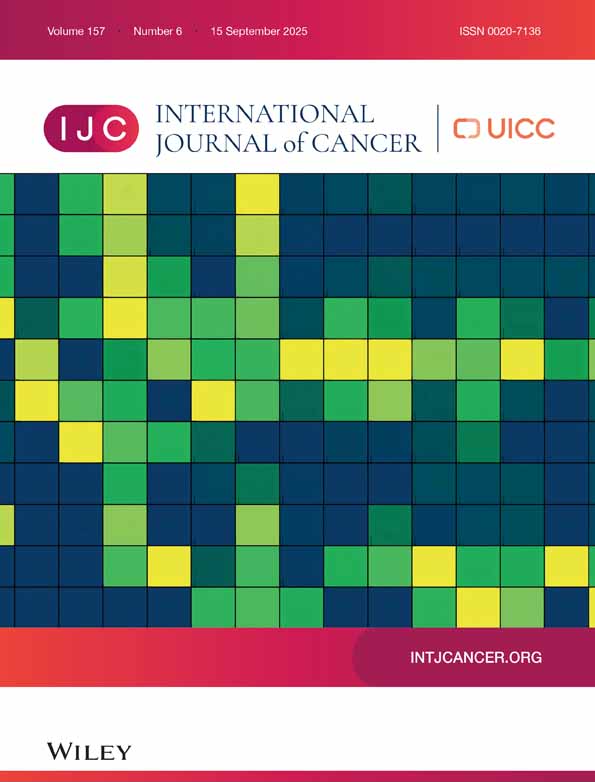In vivo eradication of an established human melanoma by an in vitro generated autologous cytotoxic T cell clone: A SCID use model
Abstract
Tumor-specific T cells may be induced in vitro and in vivo. A tumor, however, is able to avoid recognition by T cells by various mechanisms, and it has therefore been difficult to use these cells for the treatment of cancer. To investigate these mechanisms, it would be desirable to identify a suitable in vivo model system to avoid the ethical considerations that are obviously limiting factors for studies in humans. In addition, tumor antigens, although recognized, may not always function as rejection antigens, thus, the establishment of an in vivo model is crucial for preclinical studies to allow the characterization of effective rejection antigens. We show here that the immunodeficient scid mouse is an excellent model system. Using this system, we demonstrate that an already established human melanoma tumor is eradicated by an in vitro generated autologous cytotoxic T cell clone. Int. J. Cancer 77:476–480, 1998. © 1998 Wiley-Liss, Inc.




